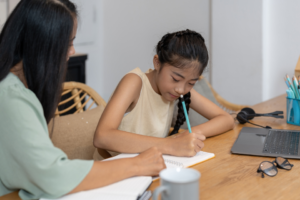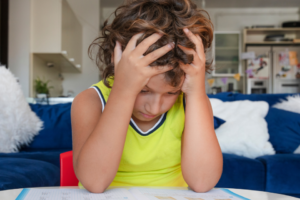
Social Media Rules to Follow as a Teacher
There are numerous social media sites out there with more appearing every day. Whether it is Facebook, Instagram, Twitter, or even YouTube, these social media sites let everyone express their views and communicate with friends and loved ones. However, there is a danger to them as well. If you say the wrong thing, there can be consequences.
Recently, Roseanne Barr was fired from the television network ABC for making a statement that she thought was humorous, but was quite controversial to many. While being a teacher in your town is not quite like being a famous celebrity, you are well known by many. It is like you are a role model for the kids you help at school and their parents. This is why being on social media as an educator can be risky.
Just like Roseanne, teachers have lost their jobs already from statements made on their own social media profiles. Whether the posts are just meant for family and friends, there are always ways for others to see them, too. Listed below are a few tips to assist educators in avoiding drama down the road.
Be Careful with Posting Questionable Pictures
Teachers are just ordinary people, but they are held to a higher standard than most. Because of this, you always have to ask yourself if the picture you are posting for everyone to see is suitable for public viewing. If the picture contains alcohol in it, you might want to avoid posting it.
A few teachers end up putting pictures of their students on their social media page as a way to show how much fun the whole class is having. However, parents and administrators may not agree that images of your students should be displayed on your social media profile. There are those parents that do not want their children anywhere near social media sites, so putting up a picture without their permission is just asking for problems.
Also, unless you are on the beach or at the pool, putting up swimsuit pictures is always a risky move as an educator. Think about how you might feel if some disturbed student took this picture and printed out copies for the whole school. Staying as PG in your pictures on social media is a smart way to stay out of trouble.
Don’t “Friend” Students or Parents
Too many teachers make the mistake of accepting “Friend” requests from their students or the students’ parents. Even if the student is no longer in your class, it is questionable to add them. Teachers are role models, indeed, and should be able to offer advice and guidance to students and parents. But allowing them to see your entire profile and everything you post could be a bad move.
Avoid Politics
It used to be a common theme that nobody would actually discuss their political views in public. That is why people vote in a private booth instead of in a public forum. Nowadays, though, people are shouting their political views from the rooftops and the streets. It has become ugly enough that friends and family have ended relationships because someone’s views disagree with their own. It is okay to feel strongly about your political party, but as an educator, you are bound to ruffle some feathers by constantly placing your views out there for others to read.
Avoid Jokes or Complaining About Your Students
Even the most innocent attempts at humor can backfire on someone using social media. It all depends on how people read the remark. What you thought was funny could be take another way by a parent or an administrator. Unless they are completely positive comments like, “My students are an amazing group of kids,” save the jokes or the complaints for face-to-face conversations.
If you feel your teaching staff could use a reminder of social media etiquette, iAchieve might be able to help. We offer several Professional Development workshops that could be of assistance in these instances. One informative workshop could prevent several headaches down the road.
Written by Ryan Crawley
RELATED POSTS



